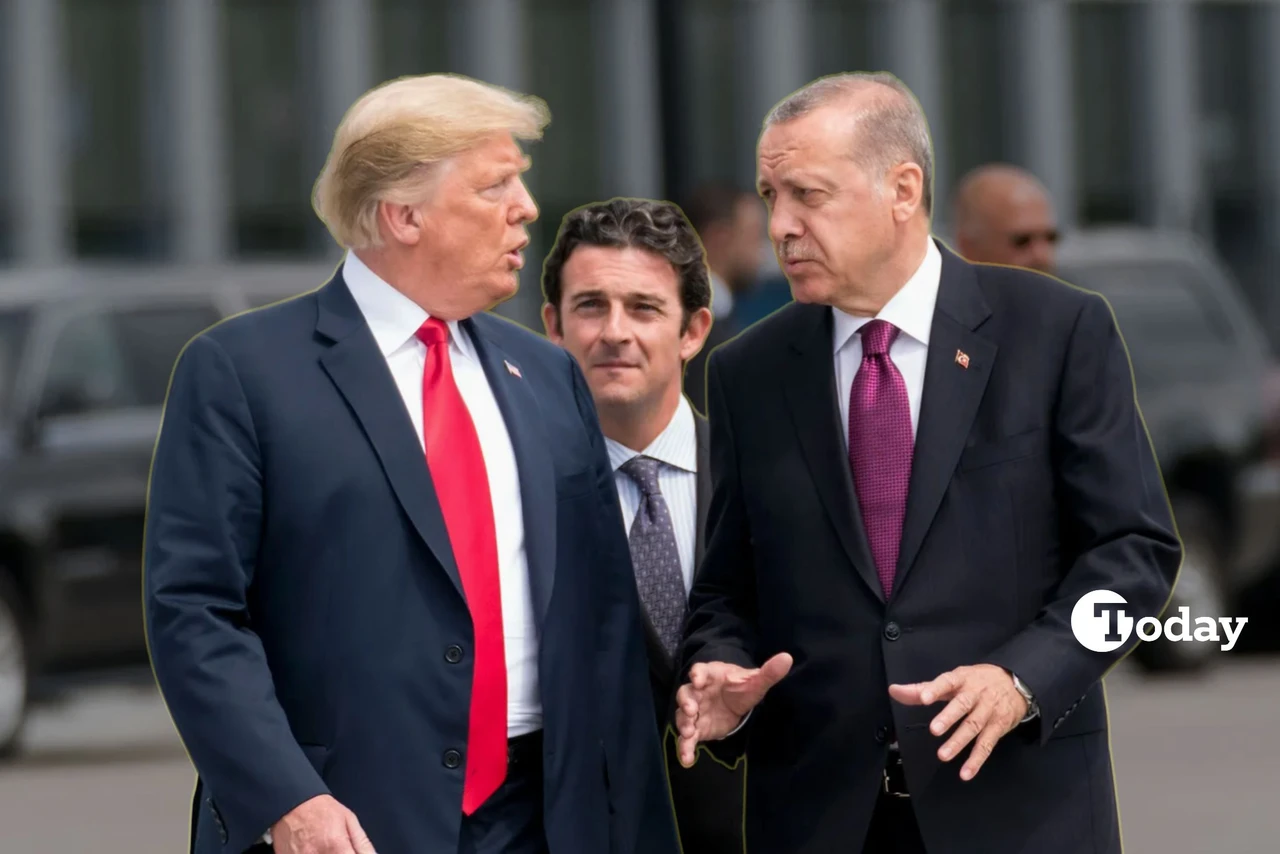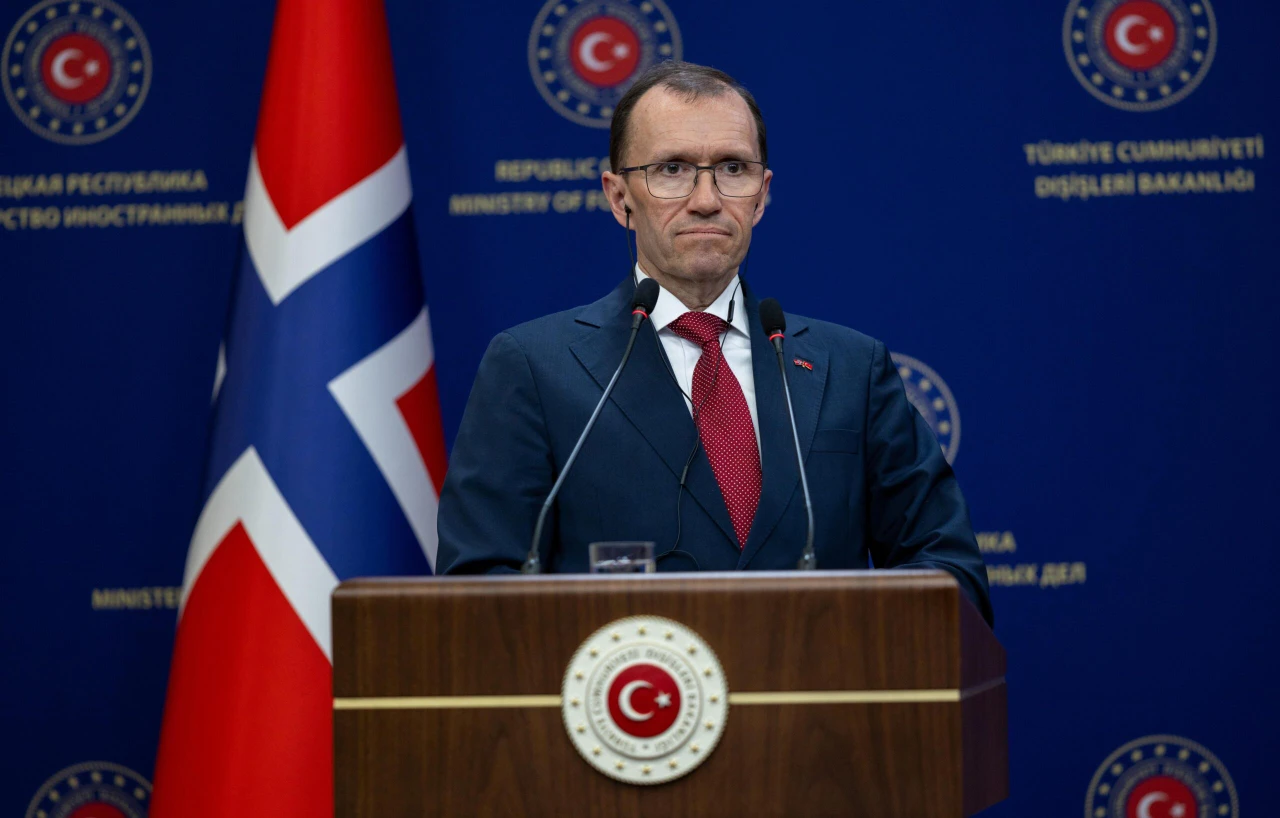Global markets crash amid sweeping Trump tariffs, fueling fears of prolonged trade war
 A trader works on the floor of the New York Stock Exchange (NYSE) at the opening bell in New York City, on April 3, 2025. Wall Street stocks sank in early trading on Apr. 3,2025, joining a global equity selloff after President Donald Trump's latest tariff announcement exacerbated worries about a trade war and global economic downturn. (AFP Photo)
A trader works on the floor of the New York Stock Exchange (NYSE) at the opening bell in New York City, on April 3, 2025. Wall Street stocks sank in early trading on Apr. 3,2025, joining a global equity selloff after President Donald Trump's latest tariff announcement exacerbated worries about a trade war and global economic downturn. (AFP Photo)
A major sell-off across global markets began with the unveiling of Trump’s tariffs on Thursday, as losses deepened in Asia the following day, fueled by investor concerns over a potential global recession and escalating trade tensions.
Shock waves tore through markets in the United States, Europe, and Asia after Trump’s tariff bombshell, as foreign leaders signaled readiness to negotiate but also threatened counter-tariffs.
Wall Street suffered its worst day since the early days of the COVID-19 pandemic, and the dollar tanked against major peers on Thursday. The S&P 500 dropped 4.8% in its biggest loss since 2020. The tech-rich Nasdaq plummeted 6.0%, and the Dow Jones fell 4.0% at market close.
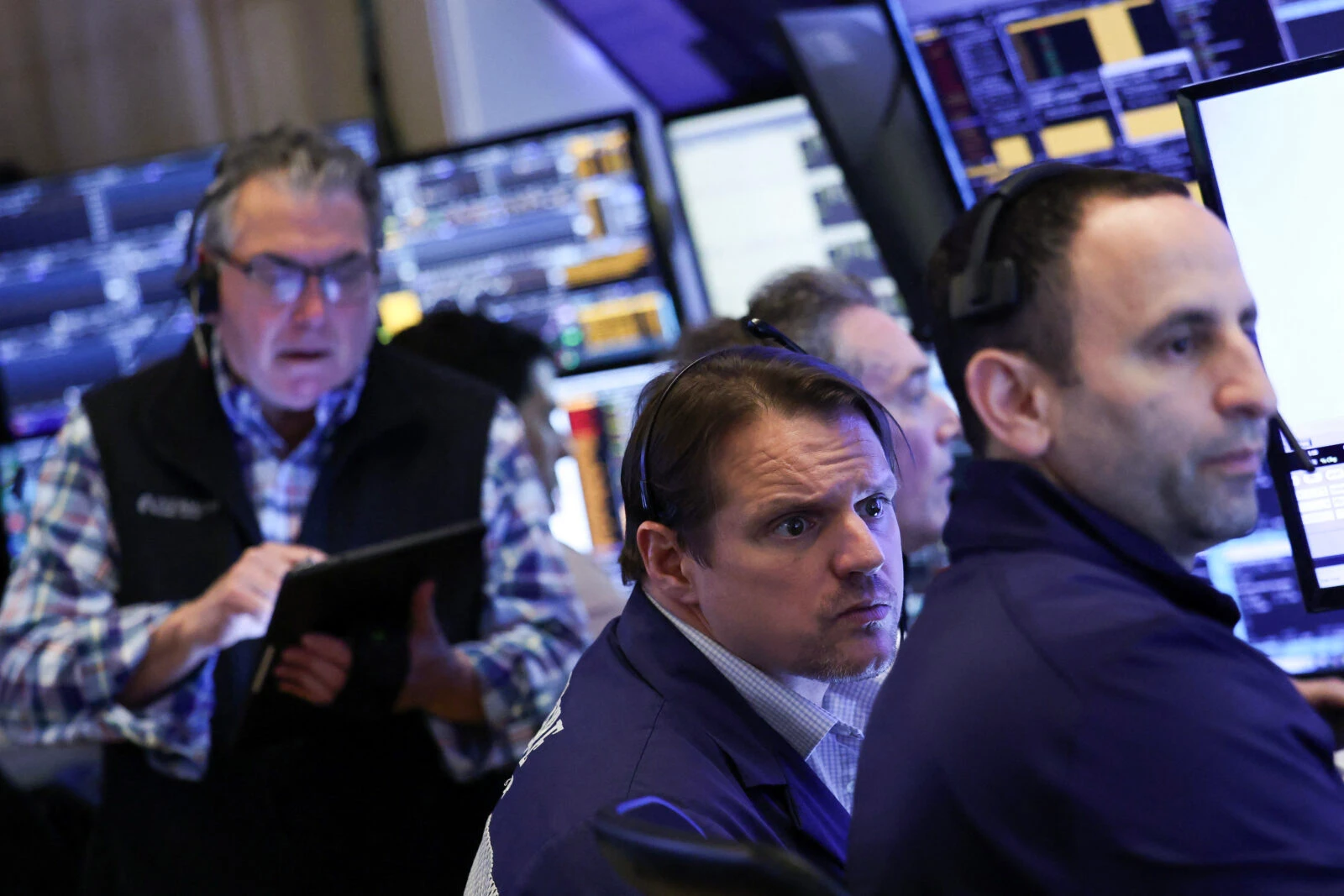
Paris shed 0.9% to 7,533.26 points, Frankfurt fell 0.7% to 21,566.33, and London also dropped 0.7% to 8,416.32.
On Friday, Frankfurt’s main DAX index of German blue-chip companies plunged more than 5% moments after the Chinese government said it would slap 34% tariffs on all imports of U.S. goods from April 10.
Paris tumbled 4.2%, and London gave up 3.9% in early afternoon deals.
Losses deepen on Friday in Asian markets
Asian investors continued to offload shares on Friday amid concerns about the possibility of more market-negative headlines over the weekend.
Japan’s key Nikkei 225 index was down more than 3% in afternoon trade Friday, with Prime Minister Shigeru Ishiba describing Trump’s tariffs as a “national crisis.” Car giants took the heat once more, as Toyota lost more than 4%, while Nissan and Honda each sank more than 5%. Tech titan Sony and tech investor SoftBank were also sharply lower again.
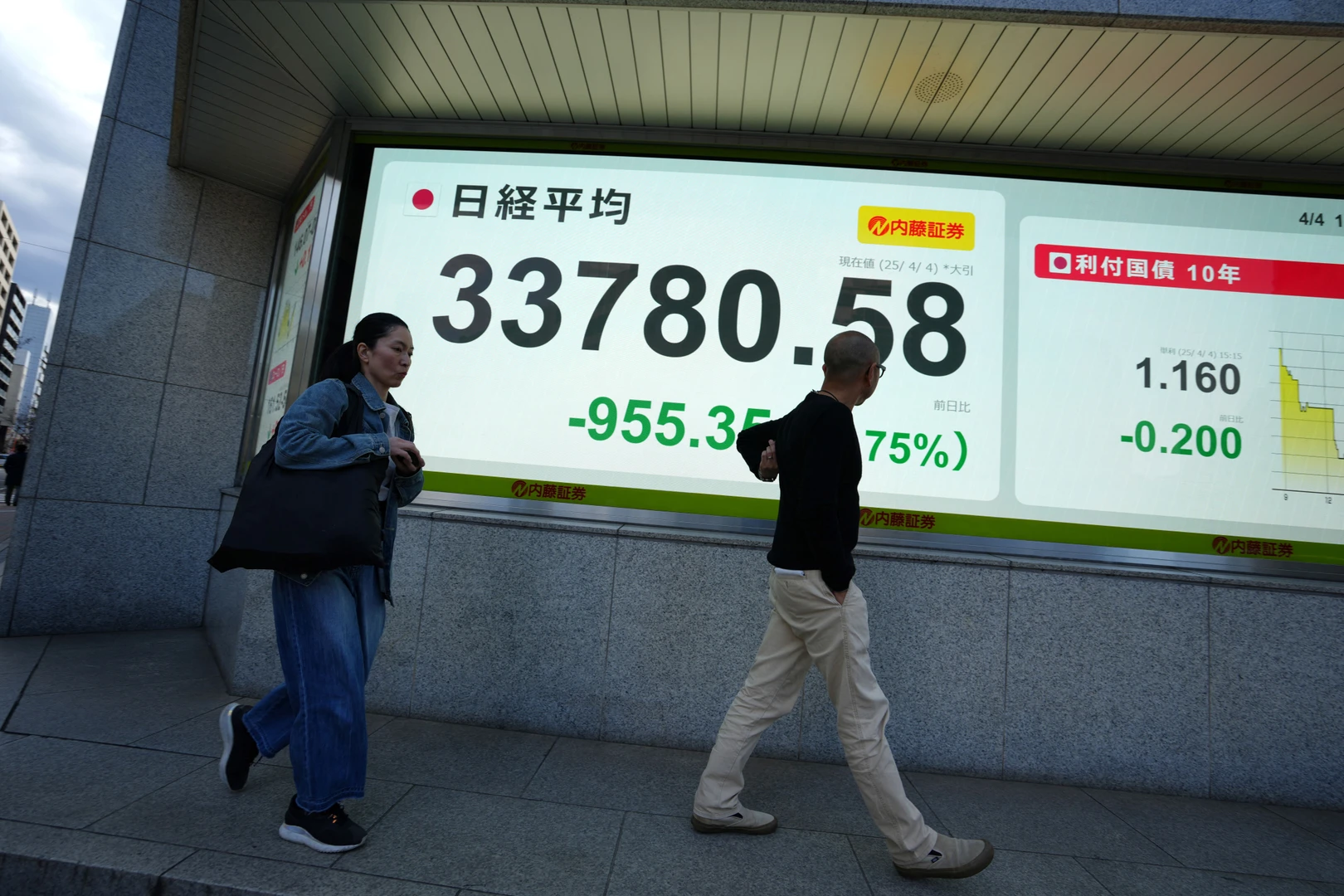
Sydney tumbled more than 2% along with Singapore and Bangkok, while Seoul, Wellington, Mumbai, and Manila were deep in the red as well.
Hanoi, which plunged more than 7% on Thursday owing to the nearly 50% tariff imposed on Vietnam, fell another 4.6%.
Hong Kong, Shanghai, Taipei, and Jakarta were closed for the holidays.
The dollar remained under pressure across the board and was sitting at a six-month low against the yen, euro, and sterling.
Oil extended its losses on Friday, having already tanked more than 6% on Thursday amid fears that a possible recession could dampen demand. Prices fell to their lowest levels since 2021, with international benchmark Brent crude dropping 3% to $68.06 per barrel after OPEC+ unexpectedly increased output.
The main U.S. crude benchmark, West Texas Intermediate (WTI), declined 3.1% to $64.86. Both contracts had plunged around 6.5% on Thursday.
‘It’s going to be a booming economy’
As stocks were falling off a cliff, 78-year-old Republican President Donald Trump insisted they would “boom” as the economy recalibrates, speaking during his address on Thursday.
Trump said he wants to make the United States free from reliance on foreign manufacturers in a massive economic reshaping that he likened to a medical procedure.
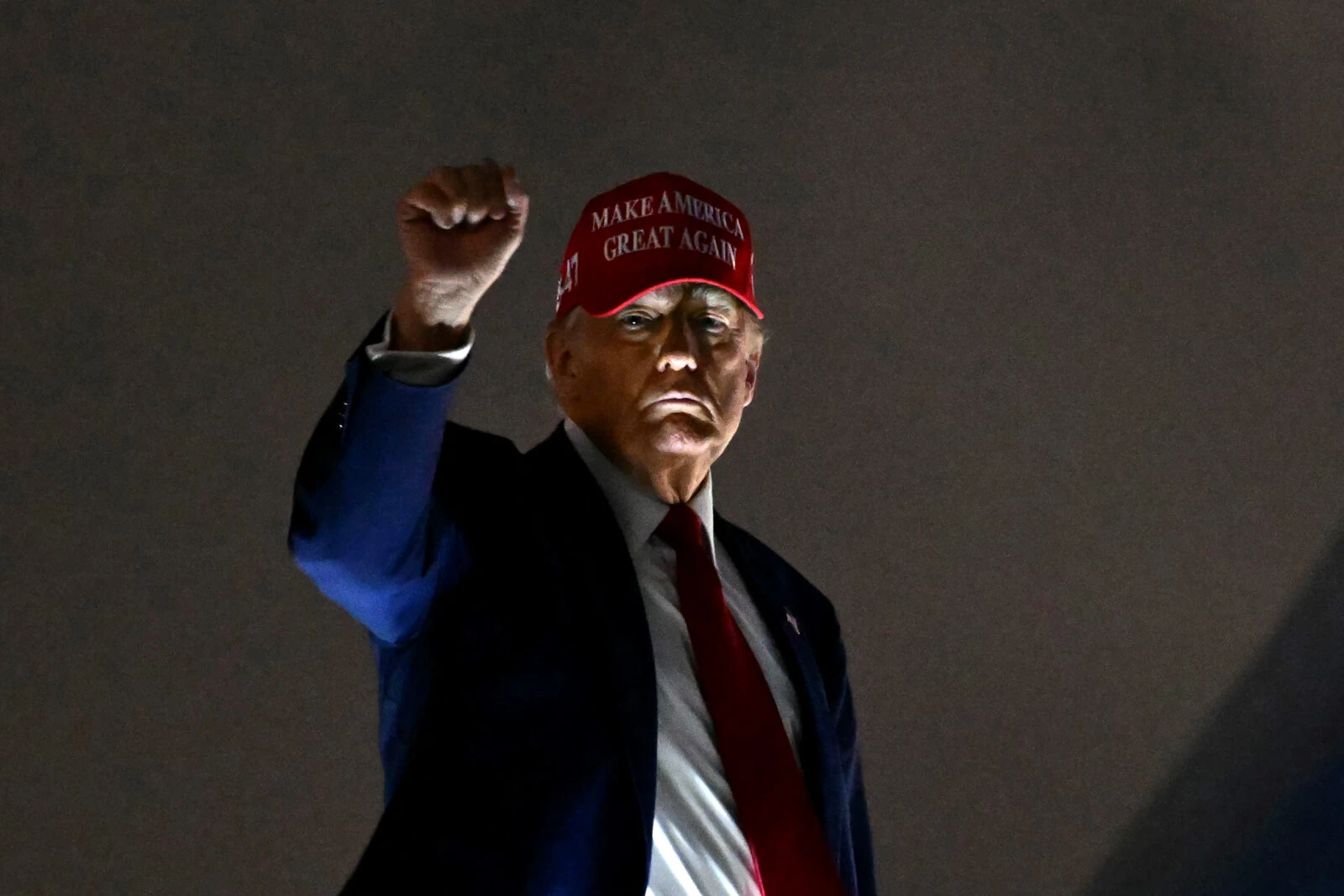
“It’s what is expected,” he said. “The patient was very sick. The economy had a lot of problems. It went through an operation. It’s going to be a booming economy. It’s going to be amazing.”
White House Press Secretary Karoline Leavitt warned on CNN, “The president made it clear yesterday this is not a negotiation.”
Trump later said he would negotiate “as long as they are giving something that is good.” But fears are growing that governments will retaliate in kind, further harming global trade and battering the world economy.
Some have already warned they will act, while others have said they will take time to assess the impact of the measures.
China demanded the tariffs be immediately canceled and vowed countermeasures, while France and Germany warned that the European Union could target U.S. tech firms.
French President Emmanuel Macron called for suspending investment in the United States until what he called the “brutal” new tariffs had been “clarified.”
Japanese Prime Minister Shigeru Ishiba said Friday that the 24% levies his country faced were a “national crisis.”
Jim Zelter, president of Apollo Global Management, warned that the chances of a U.S. recession had risen to at least one in two.
He added the levies could put the Federal Reserve in a bind, as it would have to weigh hiking interest rates to fight a possible inflation spike or cutting them to support the economy.
Investors will be keeping a close eye on U.S. jobs data due later Friday for fresh insight into the state of the world’s top economy, while Fed Chair Jerome Powell is also scheduled to give a speech.

